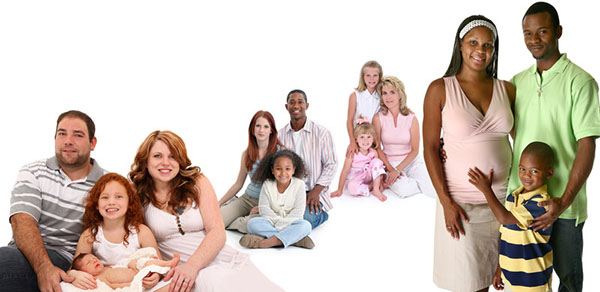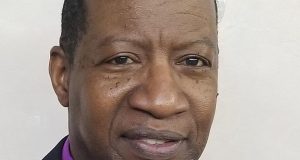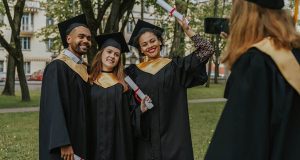By Dr. Leon Barrett
Education Commentator
 There is emerging agreement that the education of our children is a community responsibility.
There is emerging agreement that the education of our children is a community responsibility.
The partners are the home (parents and other members of the household), the children/students, the school (formal education system/government), and the community (non-governmental organizations, including religious bodies).
Over the course of time, I will address the roles of each partner. I will start with parents.
The Ontario Ministry of education in its curriculum documents, for example, outlines some of the roles parents can play in the education of their children.
In the elementary school social studies and history and geography curriculum document, for example, it notes: “Parents play an important role in their children’s learning. Studies show that students perform better in school if their parents are involved in their education. By becoming familiar with the social studies, history, and geography curriculum, parents can better appreciate what is being taught in each grade and what their children are expected to learn.
“This awareness will enhance parents’ ability to discuss their children’s work with them, to communicate with teachers, and to ask relevant questions about their children’s progress. Knowledge of the expectations will also help parents understand how their children are progressing in school and will enhance their ability to work with teachers to improve their children’s learning.
“Parents are the primary educators of their children with respect to learning about values, appropriate behaviour, and cultural, spiritual, and personal beliefs and traditions, and they are their children’s first role models. It is therefore important for schools and parents to work together to ensure that home and school provide a mutually supportive framework for young people’s education.
“Effective ways in which parents can support their children’s learning include the following: attending parent-teacher interviews; participating in parent workshops and school council activities (including becoming a school council member); and encouraging their children to complete their assignments and to practise new skills or apply new learning at home.
“Parents can be supportive by discussing current events with their children, encouraging them to develop an awareness of issues relevant to their studies. Parents can also promote their children’s understanding of and appreciation for the multiple communities to which they belong – ethno-cultural, religious, linguistic, national – by exposing them to people, cultural events, and stories related to their heritage. Within the school, parents can promote and attend events related to social studies, history, and geography.”
These are not the only roles parents can, and should, play as I will discuss.
There is a popular view that the involvement of parents in the education of their children starts in the formal education system (school) and is the basis of student success. This though is based on a narrow view of education.
Education is more than what is done to, with and for students in the educational institutions. As my associates and I noted in our book, Succeeding in the Educational Maze, and in our community presentations, more education occurs outside of the formal education system than occurs within it.
We have adopted a broader view of education. We regard education as both a process and a product. The process involves all the things we do to acquire the product, which includes the skills, values, attitudes, experiences, and knowledge we build up from birth to our death.
So education is going on all the time. As the popular slogan says, “Education is a journey, not a destination”.
This means the education of our children starts with parents, even before the children are born, and should continue even after they leave home, if they do leave home.
When we decide to have children, there are some things we should consider and bear in mind. For example, the children will not be living by chance. There is a purpose for which they will be living.
I remember my mother telling us (her children) that when she was young, she had life “hard”. She decided, there and then, that if she ever had children, she was going to make sure they did not “suffer” as she did. Her plan for us was lots of values, character and formal education.
Like my mother, before the children are born we need to think about the values (including appropriate positive behaviours that are likely to improve their life chances) we need to teach them, the experiences to which we want them exposed, the possible careers they should be pursuing, the type of citizens they should become, and so on.
When the children are born, these things should act as a guide to help train them to be good, productive, self-reliant citizens.
From a child is born, he or she is exposed to, or bombarded on every side, by sustained propaganda, which is doing great harm. There are all sorts of competing influences, starting in the home with members of the household.
Through electronics in the home (like the television, telephone and computer), they are constantly, systematically being indoctrinated in things, some of which are objectionable and undesirable. Shortly thereafter, there are community influences, influences at school, at church, at social gatherings, and so on.
It is important then, that from the earliest moment possible, parents get involved in an organized and systematic way to counter some of the negative influences to which the children are being exposed.
We must always remember that it is our responsibility to be our children’s first teachers, cheerleaders and positive role models. When our children consider role models, without thinking, we are to be the first persons that come to their minds.
From birth too, parents should continue to play an important role in the academic development of their children, laying a firm foundation for further education.
As I outline in my book, Mathematics Is All Around Us, parents do not have to be trained teachers to accomplish this task. Instinctively we teach the children by the things we say and do.
Through life experiences, if nothing else, we are more than qualified and competent to lay the foundation for academic excellence, among other things. Instinctively we do many things that are further developed in the formal education system.
For example, we teach our children to creep, stand, walk, run, do things with their hands and other parts of their body (motor development). We teach them to speak, identify letters of the alphabet, words, read, tell stories, talk about things, use words in all sorts of ways, and listen (language development).
We teach them to count, identify numbers, shapes, patterns, money, time, distance, temperature, sort things, guess number of things, put things in groups (mathematics development). We teach or encourage them to draw, sing, dance, play music (visual and performing arts).
We tell them about places (geography). We tell them about things that happened in the past and other things that are happening now (history). We encourage them to use their imagination and think (mental development).
We teach them all sorts of physical games (physical education). We teach them about hygiene and to take care of their bodies (health and science). We teach them to build things (science, engineering). We teach them to cook (math, science, language).
By doing these things, being aware of what we are doing, and pointing out to the children the connections to what they will be, or are, learning in school, we, as parents, are laying a firm foundation for the academic success of our children.
This is one of the real conditions for student success in the formal education system.
In my next commentary I will discuss some other ways parents can make a great impact on the education and academic success of their children.
Dr. Barrett is a retired Peel Region District Board teacher and educator. Write to him at pridenews@bellnet.ca.
 Pride News Canada's Leader In African Canadian & Caribbean News, Views & Lifestyle
Pride News Canada's Leader In African Canadian & Caribbean News, Views & Lifestyle






